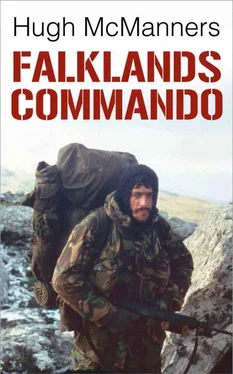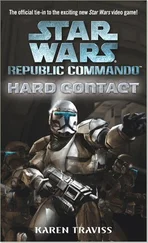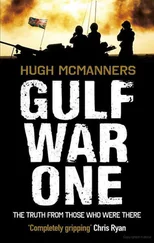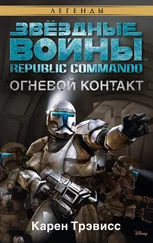Hugh McManners - Falklands Commando
Здесь есть возможность читать онлайн «Hugh McManners - Falklands Commando» весь текст электронной книги совершенно бесплатно (целиком полную версию без сокращений). В некоторых случаях можно слушать аудио, скачать через торрент в формате fb2 и присутствует краткое содержание. Город: London, Год выпуска: 2014, ISBN: 2014, Издательство: Nightstrike Publishing, Жанр: nonf_military, Биографии и Мемуары, на английском языке. Описание произведения, (предисловие) а так же отзывы посетителей доступны на портале библиотеки ЛибКат.
- Название:Falklands Commando
- Автор:
- Издательство:Nightstrike Publishing
- Жанр:
- Год:2014
- Город:London
- ISBN:978-0-992-81540-0
- Рейтинг книги:4 / 5. Голосов: 1
-
Избранное:Добавить в избранное
- Отзывы:
-
Ваша оценка:
- 80
- 1
- 2
- 3
- 4
- 5
Falklands Commando: краткое содержание, описание и аннотация
Предлагаем к чтению аннотацию, описание, краткое содержание или предисловие (зависит от того, что написал сам автор книги «Falklands Commando»). Если вы не нашли необходимую информацию о книге — напишите в комментариях, мы постараемся отыскать её.
Falklands Commando — читать онлайн бесплатно полную книгу (весь текст) целиком
Ниже представлен текст книги, разбитый по страницам. Система сохранения места последней прочитанной страницы, позволяет с удобством читать онлайн бесплатно книгу «Falklands Commando», без необходимости каждый раз заново искать на чём Вы остановились. Поставьте закладку, и сможете в любой момент перейти на страницу, на которой закончили чтение.
Интервал:
Закладка:
For those of us born into the second half of the twentieth century and later, it is impossible to imagine conscription and General War affecting entire nations. The USA was deeply traumatised by Vietnam conscription, but this affected just one generation, and was limited to the less affluent socio-economic groups who were conscripted. Germany is still deeply troubled, but largely silent about its Second World War experience. Japan is similarly reticent; whereas following on from the Soviet Union’s determination never to forget having been invaded by Germany, Russia reveres its wartime heroes, and continues to honour their actions.
But even in Russia, the later generations cannot truly understand what war is really like; and the fading or dead generations that do understand, are loath to talk about it. This is entirely understandable – and proper. Life should not be about fighting, violence and death, but about living.
It is however important to get war into the right perspective.
War is far from being an entirely miserable experience; rather it is a peculiar mixture of pain, horror, and heady excitement, creating an emotional cocktail that some combatants actually relish. Mercenaries have been a constant factor in military history; and are so today, in Africa, the former Soviet republics, and as they were in the confusion of the Yugoslav civil war. A more recent trend seems to be for western Muslims to seek jehad in places like Syria and the Horn of Africa. Their misguided, corrupted religious motivation seems to me to have a naive sort of thrill-seeking at its root – for both now, and in their promised after-life. This non-nationalistic ‘fighting for a cause’ is a notable phenomenon, carrying similarities to for example the Brits and others who went to Spain to fight fascism in the Spanish Civil war.
So, modern mercenaries, by which I mean soldiers with no strong allegiances for which they fight, risk life and limb as much because they enjoy it, as for the money. We can assume that their historical forebears were similarly engaged.
The actual fighting can provide a diversion from the misery of a campaign, which actually buoys people up and keeps them going. I ‘enjoyed’ the Falklands War: being part of a brotherhood of dedicated, like-minded people I knew extremely well; amid the excitement of doing the job I’d trained to do, in a unique atmosphere of almost cavalier but ruthlessly serious professionalism.
Indeed, many combatants look back on ‘their war’ as the most rewarding times of their lives, when human relations were at their most meaningful, and life had a clear purpose. For those without personal experience of war, it must seem very strange that something so essentially terrible could be remembered in such a way. It is perhaps an indication of the extent to which war affects combatants that they should return to normal society with such feelings.
After a war, however, combatants do not just turn smartly to the right and march off into the sunset, restarting their normal lives from where they were interrupted. There is a price to be paid for the basic freedoms that we enjoy and that which governments do in our name (whether or not we agree with them). Because our professional armed forces do the dirty work on our behalf, most voters and citizens remain blissfully unaware of that price, while our Service men and women pay it. This book seeks to explain the complicated nature of that price, and the emotional overdraft that combat veterans run up in war, which afterwards many never manage to pay off.
War is by far the most traumatic ‘life event’ that any human can experience, a damaging combination of danger, uncertainty and horror. Civilian experiences, no matter how terrible, are simply not in the same league.
Steven Hughes, today an orthopaedic surgeon, back in 1982 was an army captain and 2nd Battalion the Parachute Regiment’s doctor throughout the battles for Goose Green and Wireless Ridge during the Falklands War:
“I can’t think of a civilian experience of similar magnitude – not even the Clapham train disaster, King’s Cross fire or whatever. It’s like willingly taking part in the disaster – all of you going to King’s Cross, including setting fire to the place yourselves… It also lasted for a sustained period of time.”
Psychologists have identified a scale of normal human occurrences: such as divorce, bereavement, changing job, moving house and so on, which seriously affect all of us at various times in our lives. These ‘life events’ can occur simultaneously; for example divorce, moving house and changing job often go together. It is accepted that the upward spiral of stress created by experiencing two or more ‘life events’ at the same time, can have marked and injurious effects on the health of the unfortunate individuals going through the emotional mill.
On the battlefield, in addition to the ordinary stress of being separated from their families and doing a ‘new job’ somewhere strange, professional soldiers suffer frequent bereavements and an increasing sense of danger and personal vulnerability. This is in addition to the horrors they see and the terrible things they find themselves doing. They are bolstered to an extent by their training and by unit esprit de corps , but being human they suffer nevertheless. Many experience serious psychological problems on the battlefield; and many more develop long-term problems when they return to peacetime life.
This book takes a hard look at the realities of modern warfare, not from a historical or military point of view, but from an emotional perspective, through the eyes of the individuals who do the fighting. Although it concentrates on the Falklands War (because I fought in it and it’s the most recent general war fought by British soldiers), it draws also from other modern wars in order to establish the common truths of what really happens when men use modern weapons against each other.
I realise that for veterans of the two World Wars, the shortness of modern general wars is something that differentiates their experiences from those of today’s combatants. However, it needs also to be understood that the Second World War was a series of campaigns all over the world. For individuals, over the six years 1939-45, this might have meant fighting in one battle of one campaign, no battles – or conversely, continuous service for example in the North Atlantic convoys.
Within a single battle, some were in the thick of it throughout, whereas others were for a time – or remained on the periphery. A “Desert Rat” could have fought in every North Africa battle, then up through Italy. Others might have done nothing but training until D Day. Fighting in the First World War was less diverse; but nevertheless was broken up into periods of a week or so in the front line trenches, interspersed with a couple of weeks back in the relative normality of the rear areas, with cafes, bars and women. The frontline was usually a place of steady attrition; patrolling at night, being shelled and sniped at sporadically by day. The “over the top” nightmares of mass casualties and heavy bombardments occurred only during major offensives. Of course, the individual had little knowledge of when offensives were likely, and so could live in perpetual fear, especially as the norm was regular exposure to friends being killed and wounded. For me, its psychological domination of life is illustrated by the fact that soldiers on leave in London, in the early hours of the morning, could hear artillery bombardments taking place on the Western Front.
For various reasons, modern general wars fought with modern weapon systems are likely to be short and furious. This requires peacetime troops to be constantly ready for imminent combat, which means also being prepared for very significant psychological shocks when finally they do fight in actual battle. There can be no sensible comparison of relative difficulty, unpleasantness or potential psychological effect between the World Wars and the wars of today.
Читать дальшеИнтервал:
Закладка:
Похожие книги на «Falklands Commando»
Представляем Вашему вниманию похожие книги на «Falklands Commando» списком для выбора. Мы отобрали схожую по названию и смыслу литературу в надежде предоставить читателям больше вариантов отыскать новые, интересные, ещё непрочитанные произведения.
Обсуждение, отзывы о книге «Falklands Commando» и просто собственные мнения читателей. Оставьте ваши комментарии, напишите, что Вы думаете о произведении, его смысле или главных героях. Укажите что конкретно понравилось, а что нет, и почему Вы так считаете.












